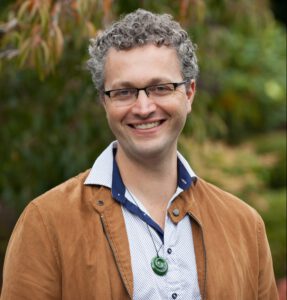I have had the good fortune to spend the past four years curating an intensive full-
immersion learning environment at Enspiral Dev Academy. It has taught me a lot about learning (protip: there is nothing like teaching to make you a better student).
Here are three specific lessons that have shaped the design of The Peer Garden.
Commitment Deviceṡ
We all experience a gap between what we could/should do and what we actually do. It’s very easy to form the intention to achieve something, it’s much harder to actually achieve it. Just saying I will ‘try harder’ or relying on significant amounts of will power often isn’t the best strategy.
A simple way to help someone put in more effort is to use a commitment device.
For example, instead of going for a run alone at 6am tomorrow morning, make a deal with a friend that you will meet them at the park at 6 am and go running together. That way when you wake up at 5.45 am and have the overwhelming desire to throw your alarm clock against the wall and roll over it will be met by the stronger desire to not let your friend down and look bad.
Dev Academy is full of commitment devices – students quit their jobs, spend a large amount of money and put all of their energy into a simple strategy. Learn enough about programming so that someone will offer them a job and pay them to continue their learning. They are also surrounded by other students who have made big sacrifices to study with us, and if they aren’t up to speed they will be letting their colleagues down.
Those commitment devices are one of the big reasons our students learn so much in a short space of time.
In The Peer Garden one main commitment device is the ‘pay by publishing’ model. If you don’t publish something you are politely asked to leave and rejoin later. We could have made the community completely open, but I believe we would have been much less effective as a learning community.
Another great commitment device is deadlines. I can confidently say I wouldn’t be writing this article now if the ‘pay by publishing’ deadline wasn’t closing in a few hours. But it would be kind of lame to launch a learning community and not publish a piece myself in the first round so here we are.
Which leads me to a third commitment device. Positive peer pressure. If all I had to do in the peer garden was lodge an article in secret and no one ever knew if I had done it or not then it would change my motivation levels. The fact that it is a public loomio proposal and it’s very obvious who did or didn’t publish something increases the likelihood I’ll actually get it done.
So one way to hack your brain is to put yourself into situations with deadlines where you won’t look good if you don’t meet them.
Community
An old martial arts teacher once told me that you will learn fastest when you surround yourself with people who are
- ahead of you that you are learning from,
- at your level who you learn with,
- following after you that you teach.
I have definitely seen this work in practice at Dev Academy. There is nothing like trying to explain something you have just learned to solidify your knowledge, or being able to celebrate/sympathise with your peers over a shared experience, or get advice from someone who has just mastered the thing you want to learn.
That’s the whole reason The Peer Garden is a learning community that welcomes people at all levels. Because when you are exploring a multidisciplinary topic such as ‘the intersection of ethical business, self management, global solutions and technology’ then you will have a different relationship to people based on the topic. The person you teach the origins and principles of Teal organising to might turn around and show you how to master Loomio.
Self Direction
There are two broad streams of learning at Dev Academy: exercises and projects.
Exercises are quite structured, they have lectures on certain topics, clear directions and are designed with very clear learning outcomes.
Projects are much looser, they are along the lines of ‘build anything you want with what we have learned so far’.
The two learning streams both have their place but one thing I have observed in projects is that they don’t work if I give students the topic. ‘build an facebook for dogs with what we have learned so far’. The times I have provided the topic students are less motivated, put in less time and learn less.
In my opinion, it is much better when people choose what they are going to dive into and then learn the things they need to achieve their objectives. That’s another reason why the peer garden has a broad topic at it’s centre and the invitation is to ‘publish anything you want, wherever you want’.
So, if you want to learn something, I highly encourage you to make good use of commitment devices, find a community to learn with and tie your learning to an objective that you want to achieve.
You’re also welcome to come and join us in The Peer Garden if you want to see first hand how this learning experiment will unfold.
